For many years now, this conference has been a major event in the plant protection industry. Listen to the various viewpoints represented by the authorities, the industry, and the research sector. This event is of interest to anyone involved in the assessment of pesticides in air, soil and water.
Plant protection products (PPP) are strictly regulated within the European Union. The risk management and environmental assessment of PPPs, essential to produce compliant products, poses challenges across the entire plant protection industry.
The conference brings together representatives from regulatory and industry backgrounds, as well as political decision-makers to discuss the latest regulatory developments. It keeps track of scientific progress, advances in environmental fate and exposure as well as recent developments in risk assessment and risk mitigation.
Newcomers to the topic of environmental behaviour of pesticides benefit from this exchange just as much as experienced e-fate managers.
Regulatory issues
Environmental fate
Exposure, risk assessment and risk mitigation
A special highlight will be an excursion to the Forschungszentrum Jülich, where you have the chance to learn about state-of-the-art digital technologies for sustainable crop production.
Programme IBG-2
Programme IBG-3
Professionals working in the fields of:
Picture Credit: © r.classen – Fotolia
Dieter Schäfer, Bayer Crop Science Division, Germany
Harry Vereecken, Forschungszentrum Jülich, Germany
Mónica García Aguilar, European Commission, Belgium (virtual presentation)
Joachim Dayteg, Austrian Agency for Health and Food Safety (AGES), Austria
Claire Anderson, HSE Chemicals Regulation Division (CRD), UK
Chris Lythgo, European Food Safety Authority (EFSA), Italy (virtual presentation)
Aaldrik Tiktak, PBL Netherlands Environmental Assessment Agency, The Netherlands
Bernhard Jene, BASF, Germany
Nadja Stadlinger, Swedish Chemicals Agency (KEMI), Sweden (virtual presentation)
Anne Alix, Corteva Agriscience, UK
Rafael Muñoz-Carpena, University of Florida, USA (virtual presentation)
Learn about state-of-the-art digital technologies for sustainable crop protection!
Institute IBG-2 Plant Science
Harry Vereecken, Forschungszentrum Jülich, Germany
Bus transfer back to the conference hotel and Dinner
Dieter Schäfer, Bayer Crop Science Division, Germany
Harry Vereecken, Forschungszentrum Jülich, Germany
Natalia Nogueira de Diego, Ministry of Agriculture, Fish and Food (MAPA), Spain (virtual presentation)
Marion Junghans, Swiss Centre for Applied Ecotoxicology, Switzerland
Vera Felix da Graca Silva, Wageningen University & Research (WUR), The Netherlands
Marc Lamshöft, Bayer Crop Science Division, Germany
Gertje Czub, German Federal Office of Consumer Protection and Food Safety (BVL), Germany
Paulien Adriaanse, Wageningen University & Research (WUR), The Netherlands
Rena Isemer, Bayer Crop Science Division, Germany
Name
Company
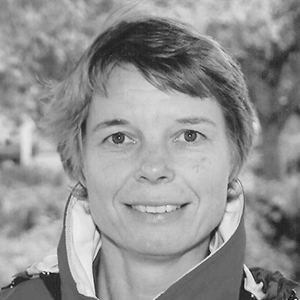
Paulien Adriaanse
Wageningen University & Research (WUR), The Netherlands
Paulien Adriaanse is a Senior Scientist at Wageningen University & Research. She works on environmental fate and exposure modelling of pesticides in the area of surface waters, as well as on how to link exposure in the field to ecotoxicological effects observed in (e.g. laboratory) experiments with imposed exposure regimes. She has been a member of the EFSA Panel on Plant Protection Products and their Residues (PPR) since 2015. From September 2019 up to May 2023 she has been a member of the EFSA WG on the Revision of the EFSA Guidance on the risk assessment for bees, and from May 2022 up to May 2023 of the EFSA WG on the Statement of the PPR Panel on design and conduct of groundwater monitoring studies.
moreless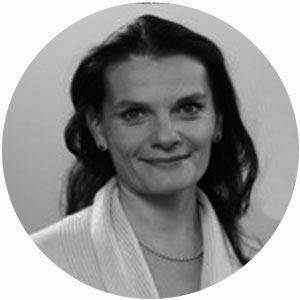
Anne Alix
Corteva Agriscience, UK
Anne Alix joined Dow AgroSciences, now Corteva Agriscience, in 2011, as distinguished laureate in Policy and Risk Management for Europe, Middle East and Africa, where she advises on Sustainability policies and precision applications. She has been working in the area of plant protection products risk assessment for 23 years. After a PhD in Integrated Pest Management (IPM) at the University of Rennes, Anne joined the French National Institute for Research in Agronomy (INRA) as an ecotoxicologist in the scientific unit for the risk assessment of crop protection products. Anne was nominated head of the Environment and Ecotoxicology risk assessment unit at the French Agency on the safety of Food (AFSSA, now ANSES), where she initiated scientific collaborations with the pesticide unit of EFSA. Anne then joined the French Ministry of Agriculture as the deputy head of the Section for Regulation of Plant Protection Products and fertilizers, in charge of the implementation of risk mitigation measures for pesticides and of post registration monitoring.
moreless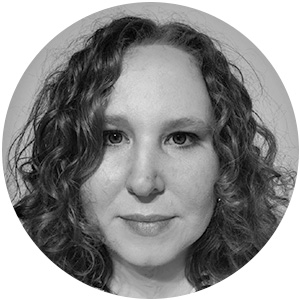
Claire Anderson
Health and Safety Executive, Chemicals Regulation Division (CRD), UK
Claire Anderson is a Senior Environmental Fate and Behaviour Specialist and part of a team of 26 regulatory environmental fate specialists at the Chemicals Regulation Division, part of the UK Health and Safety Executive. CRD is the national regulator for the whole of the UK, on behalf of the UK government and the devolved administrations, with responsibility for pesticides, biocides, detergents and general chemicals under REACH. Claire joined HSE CRD in 2009.
morelessGertje Czub
German Federal Office of Consumer Protection and Food Safety (BVL), Germany
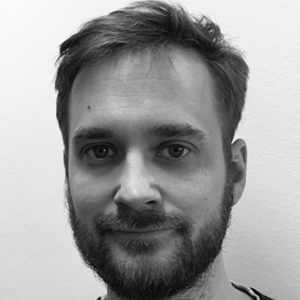
Joachim Dayteg
Austrian Agency for Health and Food Safety (AGES), Austria
Joachim Dayteg joined the Institute for Plant Protection Products of AGES Vienna in 2008 as an Environmental Fate and Behaviour Risk Assessor. He is the initiator of the harmonisation efforts in fate and behaviour in the Central zone.
morelessVera Felix da Graca Silva
Wageningen University & Research (WUR), The Netherlands
Vera Felix da Graca Silva has a PhD in environmental sciences from Wageningen University. She is a researcher in Soil Physics and Land Management (SLM) at Wageningen University since 2019. She is the scientific manager of the H2020SPRINT project (Sustainable Plant Protection A global health approach) and involved in the monitoring efforts of pesticide residues in EU and African soils (via the LUCAS 2015/2018 survey, and the H2020 Soils4Africa project, respectively).
moreless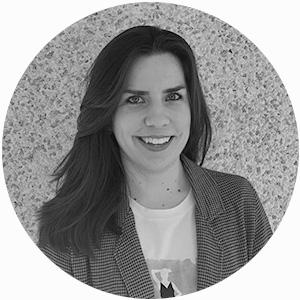
Mónica García Aguilar
European Commission, Belgium
Mónica García Aguilar is a Policy Officer at the Directorate General for Health and Food Safety (DG SANTE) of the European Commission. She is responsible for amending the EU Regulation concerning the labelling on plant protection products, developing a guidance on risk mitigation measures and handling of the decision-making procedure for chemical and micro-organisms active substances. She is also coordinating a group of technical experts from Member States and EFSA that provide scientific and regulatory guidance on environmental topics. Before that, she worked as researcher in a Horizon 2020 project on the uptake of innovative spraying equipment in Europe. She also worked in the Stockholm Environmental Institute contributing to research projects on water and waste management governance in Colombia and Bolivia. She holds a Double Degree Master Programme in Environmental Sciences in Europe from the University of Copenhagen and the Swedish University of Agricultural Sciences.
moreless
Rena Isemer
Bayer Crop Science Division, Germany
Rena Isemer is an Ecotoxicology Expert specialising in non-target plants at Bayer Crop Science Division in Monheim, Germany. A molecular biologist by training, Rena has previously worked as research associate at the University of Kiel.
moreless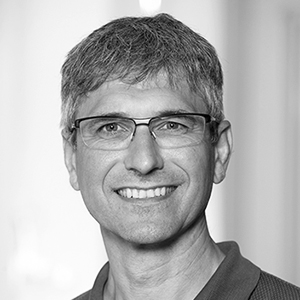
Bernhard Jene
BASF, Germany
Bernhard Jene is an Environmental Scientist at BASF in Limburgerhof with a PhD in soil physics. He has more than 20 years of experience in the area of environmental fate and exposure modelling of pesticides.
morelessMarion Junghans
Swiss Centre for Applied Ecotoxicology, Switzerland
Marion Junghans is the Team Leader Risk Assessment at the Swiss Centre Ecotox. Her areas of expertise include the risk assessment for micropollutants in water, the prediction of mixture toxicity and OECD test methods in the fields of aquatic ecotoxicology, biological degradability and environmental behaviour, as well as risk communication.
moreless
Marc Lamshöft
Bayer Crop Science Division, Germany
Marc Lamshöft has a professional background in chemistry and 20 years of experience as Laboratory Head and Metabolism & Kinetics Expert. He joined Bayer Crop Science Division in 2014 and is currently Head of Laboratory at Bayer Crop Science Division.
moreless
Chris Lythgo
European Food Safety Authority (EFSA), Italy
Chris Lythgo has a background in agricultural chemistry, soil science and microbial biotransformations. He is working at EFSA, in the PLANTS Unit assessing the environmental exposure consequent from the intended uses of plant protection products and since 2005 he has been a Team Leader of one of the risk assessment teams involved in the Pesticides Peer Review activities of EFSA. He is involved in the peer review of the Draft Assessment Reports prepared by the Competent Authorities of the EU Member States. Chris has worked in the field of regulatory risk assessment of pesticides for over 28 years.
moreless
Rafael Muñoz-Carpena
University of Florida, USA
Rafael Muñoz-Carpena is a Full Professor in Hydrology and Water Quality at the Department of Agricultural and Biological Engineering at the University of Florida. He focuses on hydrological modelling and monitoring of complex integrated environmental systems. He developed the Vegetative Filter Strips Modeling System (VFSMOD) that has been accepted as a reference tool for study and design of vegetative filter strips and is used regularly to control runoff pollution by state and federal agencies, and by research institutes in more than 20 countries. He is author or co-authored of peer-reviewed journal articles and technical publications, books, and book chapters, and he is a highly sought after speaker worldwide.
moreless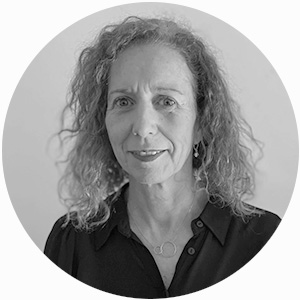
Natalia Nogueira de Diego
Ministry of Agriculture, Fish and Food (MAPA), Spain
Natalia Nogueira de Diego is the Technical Adviser of the Plant Protection Products Register in the General Directorate for Plant and Forest Health of the Ministry of Agriculture, Fish and Food (MAPA) in Madrid. Since 2017 she has been responsible for active substances in the Plant Protection Products Register and is a Spanish representative in the SCoPAFF (Committee on Plants, Animals, Food and Feed) of the European Commission. She is also a representative of Spain in the PAI (Post Approval Issues Group), IZSC (Interzonal Standard Committee) of the European Commission and the Southern Zone Steering Committee.
moreless
Dieter Schäfer
Bayer Crop Science Division, Germany
Dieter Schäfer has a professional background in environmental sciences and 25 years of experience in the environmental fate and exposure assessment of pesticides. He was the Head of the E-fate Expert Group and the Environmental Exposure Modelling Team at Bayer Crop Science Division in Monheim/Germany and is currently the Head of Environmental Exposure leading a team of experimental, modelling and assessment experts.
moreless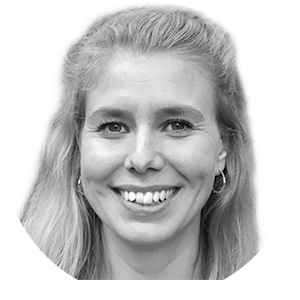
Nadja Stadlinger
Swedish Chemicals Agency (KEMI), Sweden
Nadja Stadlinger is an Ecotoxicologist and joined the Swedish Chemicals Agency (KEMI) in Sundbyberg, Sweden, in 2021. Since then she has been working at the unit of environmental assessment with pesticide fate evaluations. She has a previous background as a researcher at Stockholm University.
moreless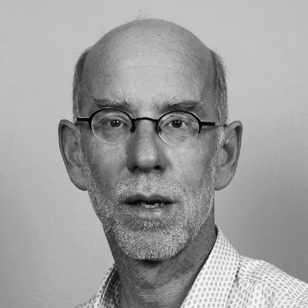
Aaldrik Tiktak
PBL Netherlands Environmental Assessment Agency, The Netherlands
Aaldrik Tiktak is a Senior Researcher Soil and Water at the PBL Netherlands Environmental Assessment Agency in The Hague. He is involved in policy evaluation and environmental risk assessment of pesticides and is one of the chief developers of the PEARL model. He has been a member of the EFSA Panel on Plant Protection Products and their Residues (PPR) since 2012. From May 2022 up to May 2023 he was chair of the EFSA working group on the Statement of the PPR Panel on design and conduct of groundwater monitoring studies. He is also co-chair of the SETAC working group on Spatially Distributed Leaching Models (SDLM).
moreless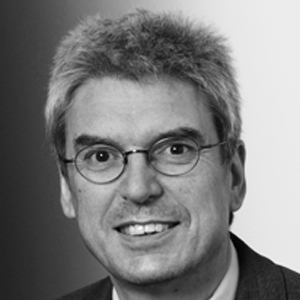
Harry Vereecken
Forschungszentrum Jülich, Germany
Harry Vereecken is a Professor and the Director of the Institute Agrosphere within the Department of Bio- and Geosciences at the Forschungszentrum Jülich.
morelessFrom Cologne-Bonn Airport, you can reach the Dorint Hotel in Düren in less than one hour by direct train connection. There is also a direct train connection from Dusseldorf airport that takes just a little more than one hour. The hotel is located within walking distance from the train station in Düren.
We have reserved a limited number of rooms for our participants at the hotel. These rooms can be booked up to 4 weeks prior to the start of the event. Please book early and directly through the hotel quoting „Akademie Fresenius“ as reference.
Participation Fee: € 1,995.00 plus VAT.
The registration fee includes the following benefits:
Representatives of an authority or a public university are therefore eligible for a reduced fee of € 895.00 plus VAT per person (please provide evidence). The reduced fee cannot be combined with other rebates.
Group Reductions
For joint bookings received from one company we grant a 15% discount from the third participant onwards.
Terms of Cancellation / Book without Risk
Written cancellations or transfers will be accepted free of charge up to four weeks prior to the start of the event. After this date and up to a week prior to the start of the event we will reimburse 50% of the registration fee. We cannot, unfortunately, provide refunds for later cancellations. However, in this case we will provide you with the event documentation after the event.
Please note that you can name a substitute free of charge at any time.
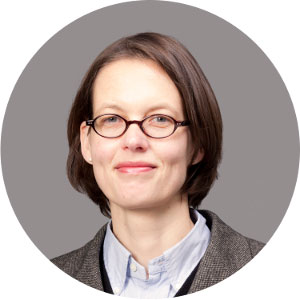
Sabine Mummenbrauer
Programme and conceptual design
+49 231 75896-82
smummenbrauer@akademie-fresenius.de

Sabine Mummenbrauer
Programme and conceptual design
+49 231 75896-82
smummenbrauer@akademie-fresenius.de

Sabine Mummenbrauer
Programme and conceptual design
+49 231 75896-82
smummenbrauer@akademie-fresenius.de
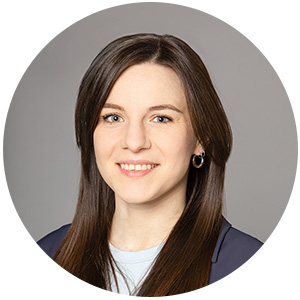
Alexandra Schardt
Organisation and participant management
+49 231 75896-74
aschardt@akademie-fresenius.de

Alexandra Schardt
Organisation and participant management
+49 231 75896-74
aschardt@akademie-fresenius.de
Present your Company at the Event.
You can personally present your products and services directly to your specified target group. We are happy to provide you with further information on our range of available options – from displaying company information at the reception counter to presenting your company with an exhibition stand.
We would be pleased to assist you personally:
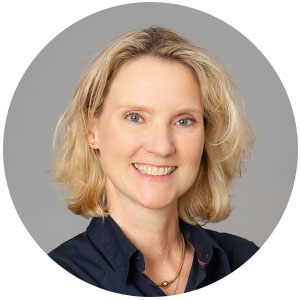
Monika Stratmann
Phone: +49 231 75896-48
info@akademie-fresenius.de
We offer journalists and editors a platform where they can get in touch with the experts.
If you are the editor of a specialist publication and interested in a press pass or media partnership, please contact us well in advance. We are happy to advise you.
Please contact us:
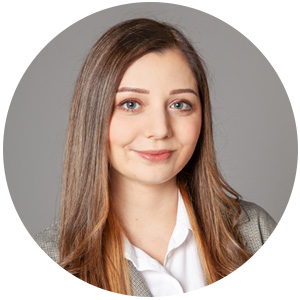
Katharina Geraridis
Phone: +49 231 75896-67
presse@akademie-fresenius.de
© Die Akademie Fresenius GmbH